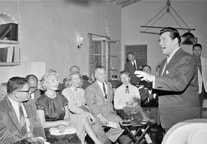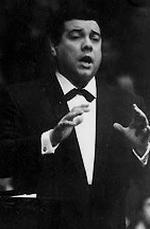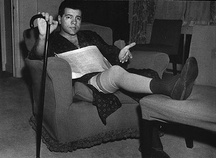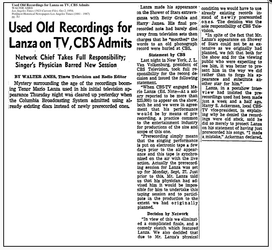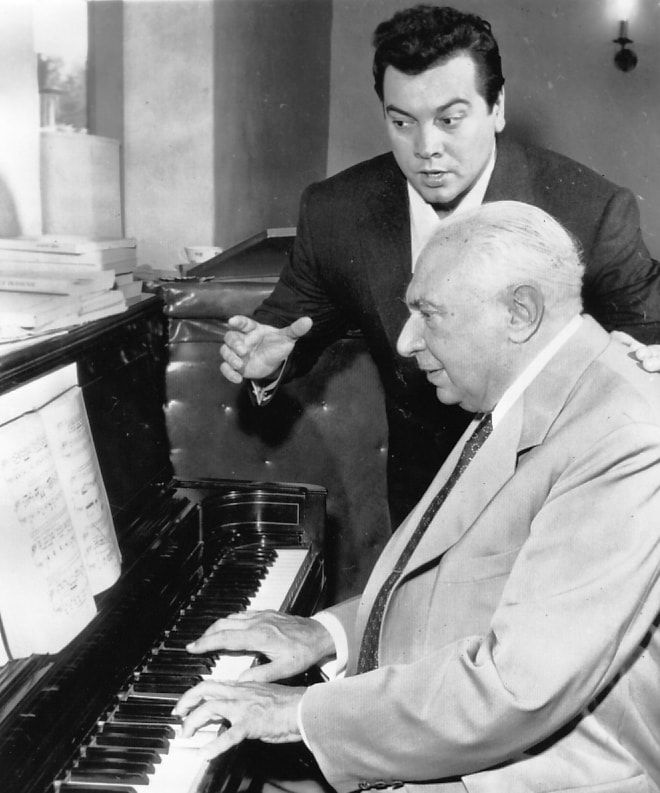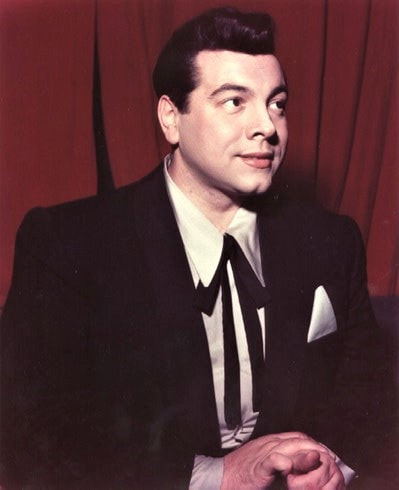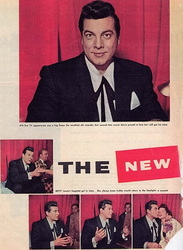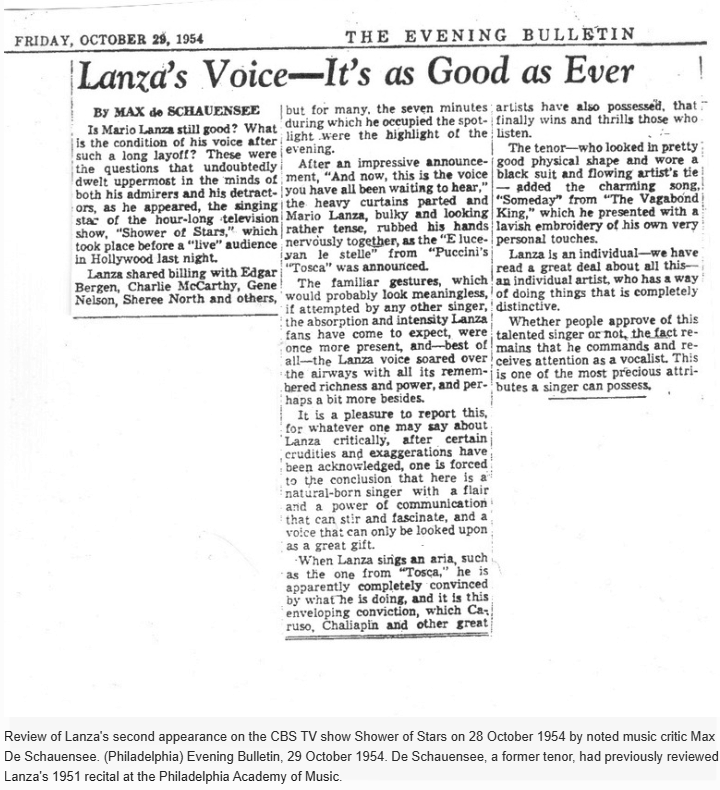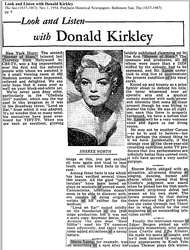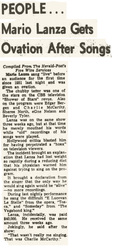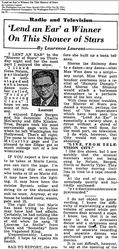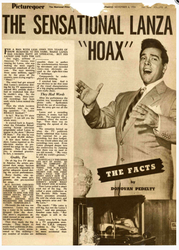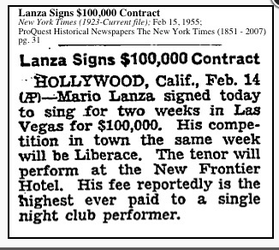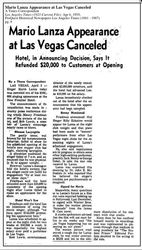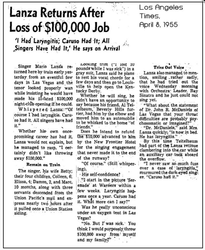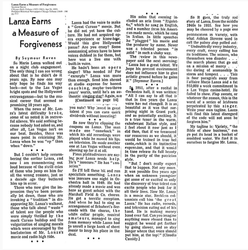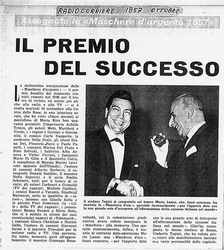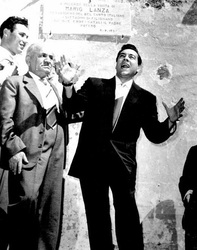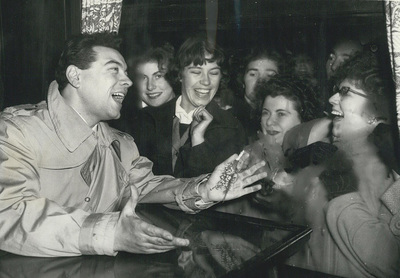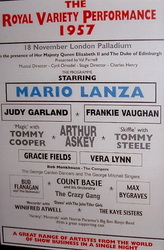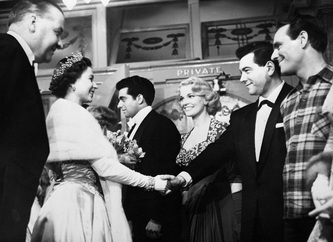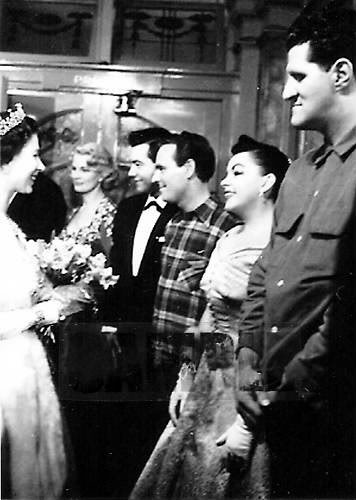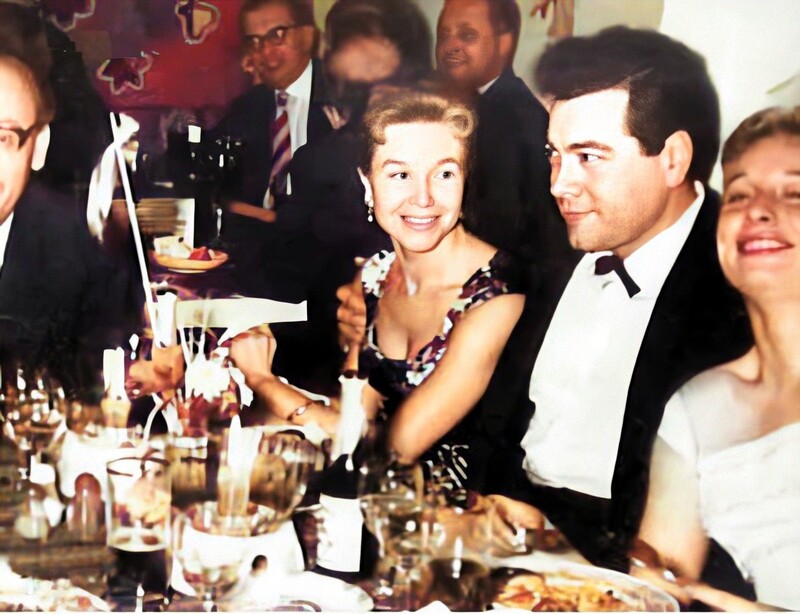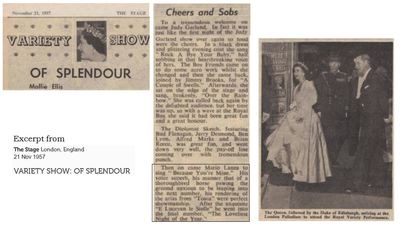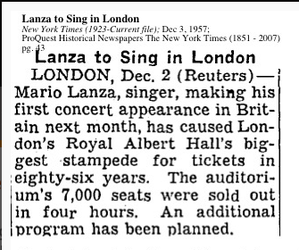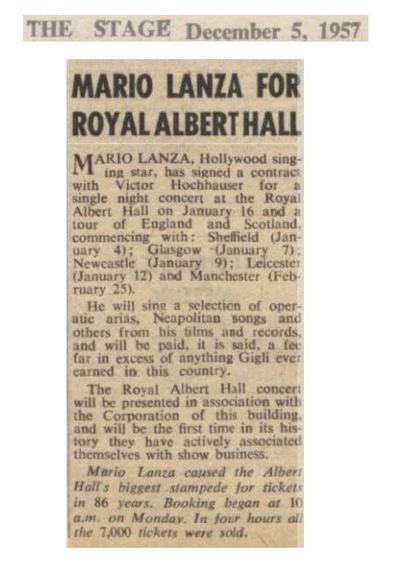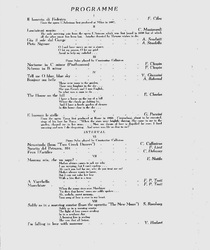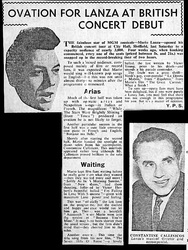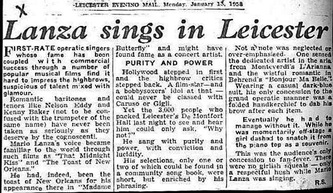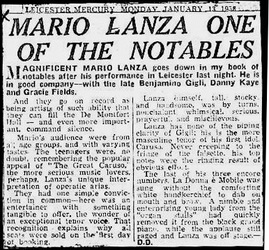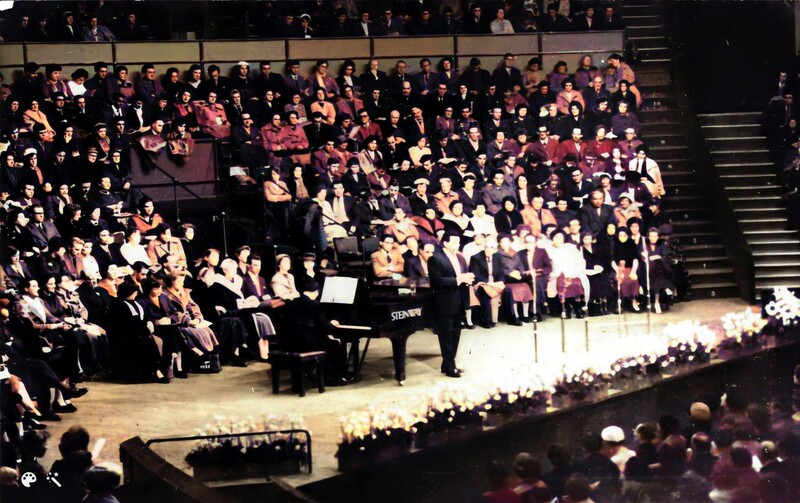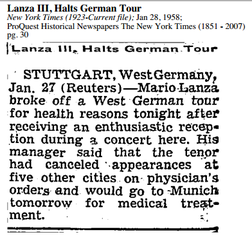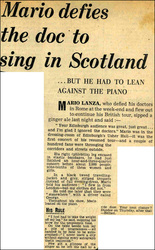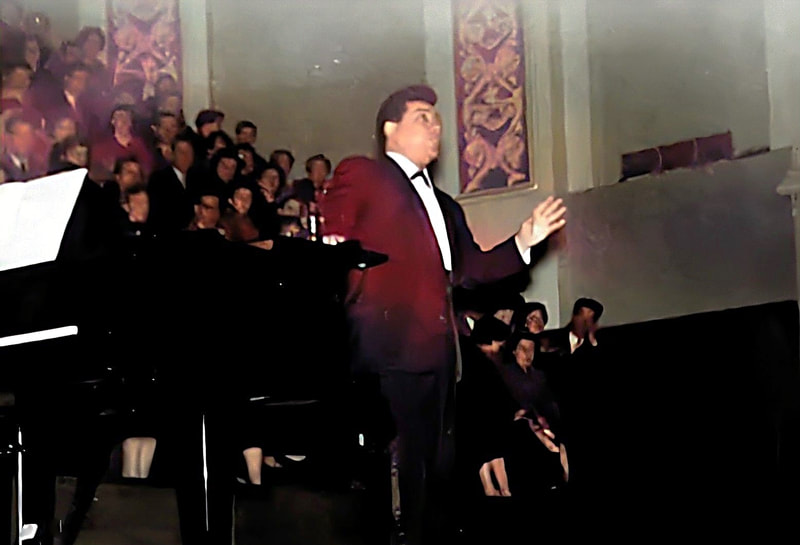"Without ballyhoo American tenor Mario Lanza strolled casually onto the stage at Kings Hall, Belle Vue, Manchester, and captivated a capacity 6000 audience with the glorious power of his voice. . . .The voice that has sold millions of gramophone records did not disappoint"—--The [Manchester] Guardian, 7 March 1958. However, the tour ended on a sour note, when at the last minute Lanza was obliged to cancel a sold-out recital in Hamburg that had been rescheduled for April 16 after a cancellation two and a half months earlier. According to Lanza's accompanist, Constantine Callinicos, the audience swiftly turned into a "lynch mob." Yet Lanza's excuse for cancelling—inflamed vocal cords (admittedly aggravated by a night of arguing with one of his entourage, punctuated with impromptu extracts from Verdi's Otello by the tenor in full voice) and a bad cold—was verified by two doctors, one of whom also diagnosed extremely high blood pressure and liver damage. Lanza was told bluntly that his health was in a precarious state, and that a sustained period of rest, coupled with complete abstinence from alcohol, was essential. After flying back to Rome, all remaining dates on his itinerary, which included additional recitals at the Royal Albert Hall and a concert at the World Fair in Brussels in May, were cancelled. Time Magazine and Newsweek—never admirers of Lanza—each had a field day with the Hamburg fiasco, with the latter magazine opining that the tenor's excuse for cancelling was "the old theatrical bromide that he was suffering from a cold." Lanza responded in an interview with the New York Tribune in May:
I caught a cold that was so bad I sounded like [hoarse comedian] Andy Devine, and people were paying to hear Lanza. Dr. Shaake, the Hamburg State Opera's own physician, examined me before the concert and told the impresario: 'I won't allow him to sing. If he wants to sing with this kind of a throat, the last responsibility is up to the artist.' At the time, Lanza still had every intention of embarking on further concert tours in spite of his by-now significant health problems. His plans included tours of South Africa, Australia and New Zealand. Had he realized, however, that the embarrassing Hamburg cancellation would mark the end of his public performing career, at least he might have had the consolation of knowing that his final recital—at the vast Ostsee Halle in Kiel on April 13—had found him in peak form:
"[Lanza] really can sing. The material belonging to this wonderfully melodious tenor is a natural gift. Lanza has a 'strad' in his throat and he understands how to use it. It is difficult to know what to admire the most. The faultless breathing technique, the elastic precision of his wording, the light 'piano.' The constantly disciplined 'forte.' The well-synchronized join between registers. Lanza sings emotionally, a smoldering fluency. His delivery is not a technical exercise but an event of blessed southern sensuality. Characteristic of the singing are the famous 'tears' in the voice, that small pretence learned from the sobbing of the nightingale that most Italian tenors put on, but here is a completely natural sound. When he is not singing, he seems a little nervous, perhaps the aftermath of a serious illness. When he sings, he is fully relaxed. He pulls his tie undone, opens his collar because of the heat. Applause, and more applause. An encore is dragged out of him---or is it two? Then, with a gesture of typical romantic panache, he says goodbye"—--Dr. Kurt Klukist, Lübecher Nachricten, 14 April 1958. [Translation from the original German]
| |
